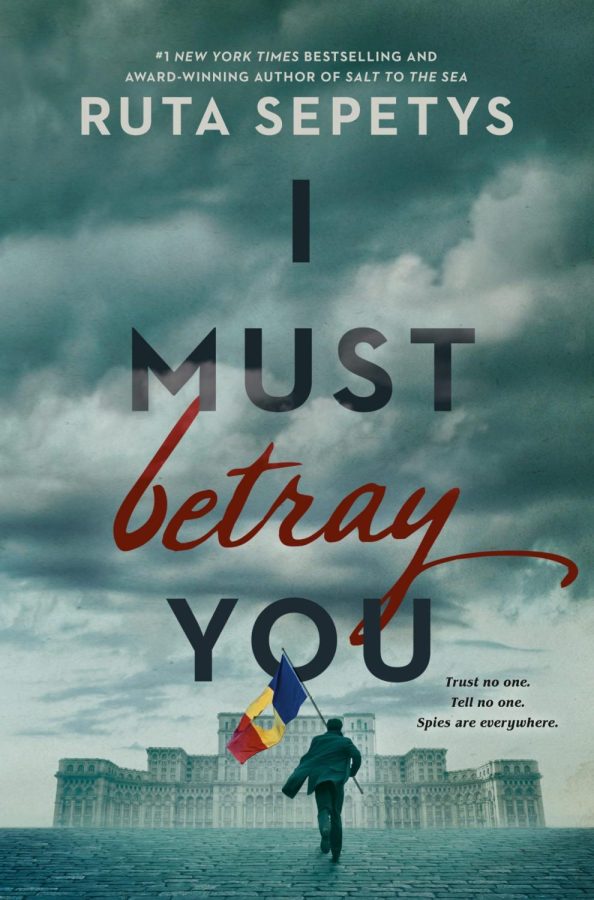Book Review: “I Must Betray You” by Ruta Sepetys
The main character of “I Must Betray You,” Christian holds the Romanian flag with a hole cut out of the center in defiance of the communist regime. Without the crest the flag of Romania is the same as it was before the Socialist Republic of Romania.
February 3, 2023
I have read every one of Ruta Sepetys’ books, starting with her third book “Salt to the Sea.” After reading it, I fell in love with historical fiction, which is still my favorite genre. I loved how it explored the past in an enjoyable way that wasn’t just straight non-fiction. “Salt to the Sea” is still one of my favorite books, so I was very excited to hear she had a new book coming out as I had been awaiting its release for three years.
Ruta Sepety’s fifth book, “I Must Betray You,” tells the story of a 17-year-old boy named Christian fighting for the freedom of his country and the people of Romania in the year 1989. In the novel, Romania has been under communist rule since 1947 and the current president, Nicolae Ceaușescu has kept his mistreatment of the people of Romania a secret from the rest of the world for years, leaving them isolated. When Christian is betrayed and then blackmailed by the secret police and forced to become an informer for them, he constructs a plan to help end his country’s suffering and possibly the regime itself.
The protagonist and narrator, Christian, is a sarcastic rebel and a completely lovable character, willing to do anything for his even more rebellious grandfather, Bunu. His commentary about his country, in his mind and in his journal, is witty and provides necessary comic relief from the intense content.
The characters and their trusting and caring relationships, such as Christian’s with Bunu and his sister Cici, were developed as a main aspect of the plot, highlighting the themes of betrayal as in a world where you can’t trust anyone, it hurts the most when you are betrayed by the people you do trust and even the strongest relationships can fall apart.
I generally liked the fast pacing, as there was never a moment in which I was bored. As someone with a short attention span, the short chapters kept me interested. Sepetys incorporated slower paced scenes where they were necessary, which was helpful in creating a balance. However, it felt like there was so much crammed into three hundred pages that it got a little confusing at times. I found myself not being able to remember some major plot points from the beginning of the book that were necessary in understanding the end and analyzing it properly. And because the book follows only Christian’s perspective over the entire course of the story, and the book’s fast pacing, the other characters feel less relevant and are developed less.
Overall, this book was definitely one of her best and one of my favorites. I would highly recommend this book to anyone who loves historical fiction and even people who don’t and think historical fiction is too much like nonfiction. For those who like to escape in fantasy, you can escape in this book too and learn something important while doing so. Sepetys’ “Salt to the Sea,” however, is still her best. “I Must Betray You,” while still an incredibly interesting book, does not compare to the intense and suspenseful “Salt to the Sea.”




